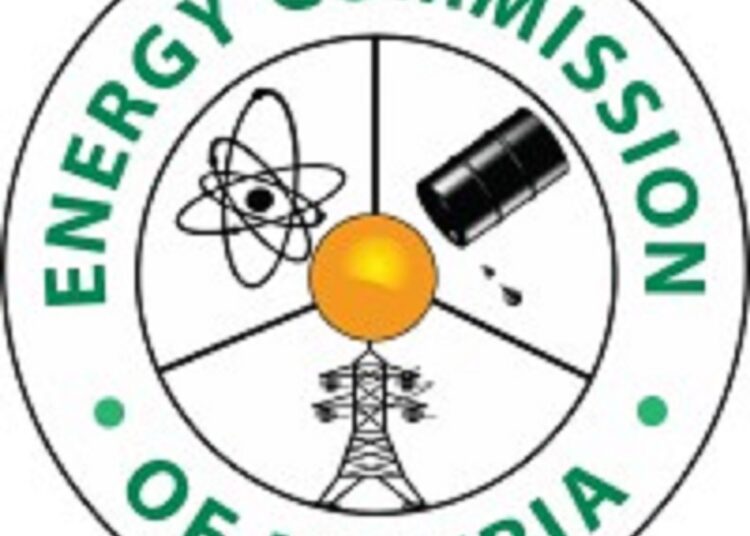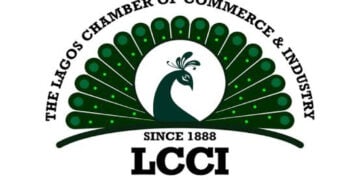In a major push toward industrial energy efficiency, the Energy Commission of Nigeria (ECN), in partnership with the United Nations Industrial Development Organisation (UNIDO), convened a technical review meeting on Thursday to refine key documents under the GEF-UNIDO Project.
The project, “Improving Nigeria’s Industrial Energy Performance and Resource Efficient Cleaner Production through Programmatic Approaches and the Promotion of Innovation in Clean Technology Solutions,” aims to enhance energy efficiency in Nigeria’s industrial sector – a crucial step toward sustainability, economic growth and climate action.
Held at the Prof. I.H. Umar Conference Hall of the Energy Commission of Nigeria in Abuja, the meeting brought together government officials, industry leaders and technical experts to review three vital outputs: the Compendium of Industrial Energy Efficiency Policies and Regulations, the Training Manual on Energy Management Systems (EnMS) and the Industrial Energy Efficiency Database (IEEDb). The event underscored the importance of energy efficiency in Nigeria’s industrial sector, a key driver of the country’s economic development and environmental sustainability goals.
Key agencies, including the Federal Ministry of Environment, the Standard Organisation of Nigeria (SON), the Federal Ministry of Power, the Bank of Industry, the National Council on Climate Change and the Nigeria Investment
Promotion Council, participated in the meeting. Both public and private sector representatives engaged in technical discussions aimed at strengthening Nigeria’s industrial energy efficiency framework.
Acting director of the Energy Transition and Linkages Department at ECN, Dr. Shehu Mustafa delivered the opening remarks, emphasising the urgent need for sustainable energy practices in Nigeria’s industrial sector. He noted that improving energy efficiency is critical for Nigeria’s industrial competitiveness and aligns with the country’s global environmental commitments.
The first agenda item was the review of the Compendium of Industrial Energy Efficiency (IEE) Policies and Regulations, which outlines Nigeria’s strategic energy policies, regulations and long-term emission reduction strategies. During the session, stakeholders proposed several amendments to ensure the document remained comprehensive and up to date. One key addition was the Nigeria Long-Term Low Emissions Development Strategy (LT-LEDS), a framework guiding the country’s transition to a low-carbon economy. Participants also recommended including all relevant regulatory bodies, such as the Nigerian Electricity Regulatory Commission (NERC) and the National Energy Management Agency (NEMSA), to ensure a holistic approach to energy governance.
A significant highlight of the meeting was the presentation of the Training Manual on Energy Management Systems (EnMS) by Industrial Energy Efficiency Project Consultant, Engr. Okon Ekpenyong. Designed to help public and private organisations adopt best energy management practices, the manual serves as a key resource for implementing ISO 50001 standards, a globally recognised framework for energy efficiency.
The manual follows the plan-do-check-act (PDCA) cycle, an internationally accepted method for continuous improvement in management systems. Stakeholders commended the practical approach of the manual, expressing eagerness to participate in future training programs to integrate energy efficiency into their operations. Ekpenyong explained that ISO 50001 provides companies with a structured approach to optimising energy use, reducing operational costs, and achieving long-term sustainability goals. Given the rising energy costs and environmental concerns, the manual is expected to play a vital role in helping Nigerian industries enhance efficiency and competitiveness.
Another major focus of the meeting was the Industrial Energy Efficiency Database (IEEDb), a tool designed to track and analyse industrial energy usage across Nigeria. The database will capture data from key industries, including steel and metal processing, petrochemicals, manufacturing, textiles, and food processing. By aggregating and analysing energy consumption patterns, the database will enable more effective policy-making, better monitoring of energy usage and identification of energy-saving opportunities.
A representative from the Federal Ministry of Power described the IEEDb as a game-changer, noting that it allows policymakers and industries to make data-driven decisions that improve energy efficiency. The database is designed to be interactive and dynamic, allowing stakeholders to visualise energy data by industry type and geographical region. This approach is expected to enhance transparency and accountability in Nigeria’s industrial energy sector.
Nigeria’s industrial sector is a key driver of the economy but is also a major energy consumer. As part of its commitment to the Paris Agreement and Nationally Determined Contributions (NDCs), the Nigerian government is prioritising sustainable energy practices in industrial operations. The GEF-UNIDO Project and the outcomes of this technical review meeting mark a critical step in that journey. By investing in clean technologies and energy-efficient practices, Nigeria aims to improve industrial productivity, reduce greenhouse gas emissions and strengthen global competitiveness.
Following this review, the next phase will involve refining the documents based on stakeholder feedback, hosting a National Stakeholder Workshop to present final outputs and training industry players on implementing energy-efficient solutions. In his closing remarks, Dr. Mustafa encouraged continuous collaboration among stakeholders. He emphasised that urgent action is needed to achieve the goals of the NIG IEE/RECP Project, noting that energy efficiency is not just an environmental concern but an economic necessity.
As Nigeria’s energy landscape continues to evolve, the ECN and UNIDO remain committed to building a more sustainable industrial energy framework. The implementation of energy management systems, strengthened regulations, workforce training and data-driven policymaking is expected to drive significant improvements in industrial energy performance. By investing in energy efficiency today, Nigeria is laying the foundation for a more sustainable and competitive industrial sector – one that aligns with global energy transition goals while fostering economic growth and job creation. With continued commitment from government, industry leaders and international partners, Nigeria is poised to become a leader in industrial energy efficiency in Africa.





